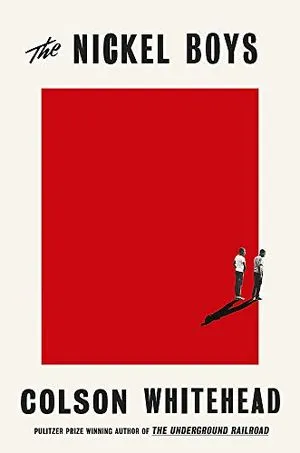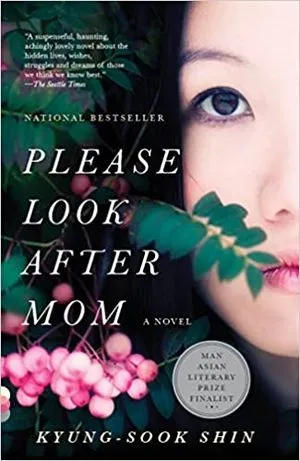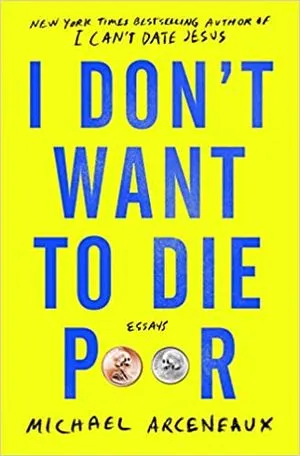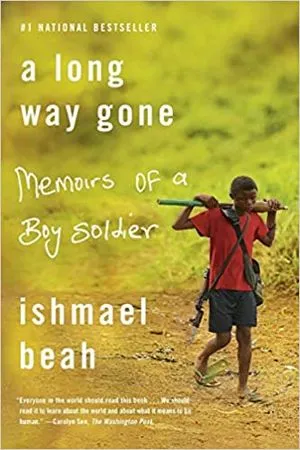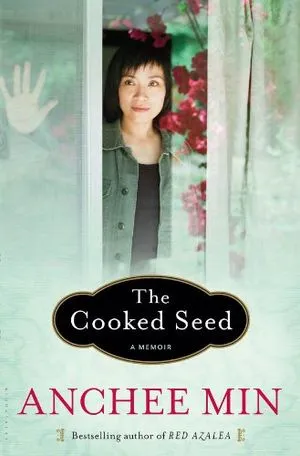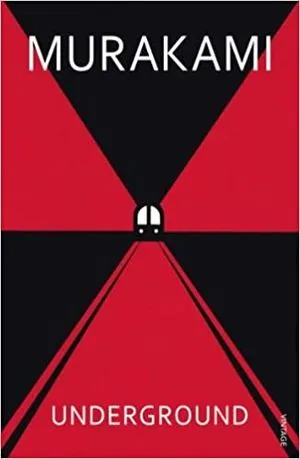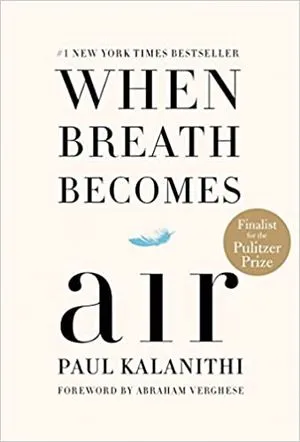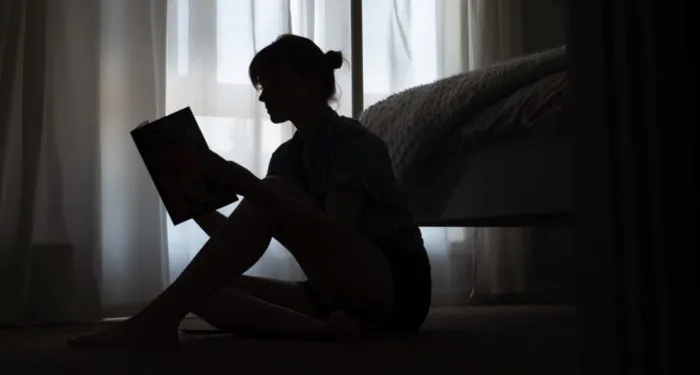
Dark Mood Reading That’s Working For Me
Some people are avoiding overly dark reading right now. I respect that. This is going to be about my own dark mood reading, but let’s start with some uplifting ideas in case you need that.
If you want happier suggestions, BR has you covered with Five Books to Read When Life Feels Like it Sucks, 20 pop culture books to distract you, and reading for pleasure while things fall apart.
Maybe you just have a short attention span right now or you’re thinking about your socially-distanced winter. It makes sense to prepare yourself mentally. We’ve also got you covered if you’re dealing with the difficulty of how to Fight the Suck when writing.
However, I have found myself embracing my darker mood reading a bit more these days. I am really not sure why. For whatever reason, I’ve wanted to go deeper into the parts of my TBR I usually skip over. I suppose these reflect my own personal worries. So here is a list of some of the books I’ve read or want to reread because things look darker in the wider world than I’d like.
Fiction That Fits My Mood
The Nickel Boys by Colson Whitehead
I recently read The Nickel Boys. I considered myself a Whitehead fan since his book Zone One came out and I loved The Underground Railroad. However, I balked at this one. Nickel Boys is set in the 1960s and tells the story of two Black boys who are sent to a reform school in Florida. There they endure beatings and other abuse. While it is definitely fiction, Whitehead based his characters and their experiences around real victims and a real school like the one in his book. I think it was the intersection of child abuse, racism, and the grave injustices that made me stay away from this one for so long. Even so, I’m glad I finally read it. It has been a very moving and solid addition to my dark mood reading list.
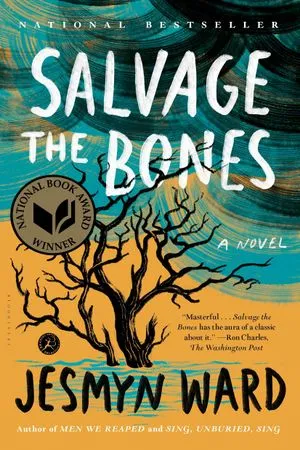
Salvage the Bones by Jesmyn Ward
Another book that hit me hard was Salvage the Bones. I remember being thoroughly engrossed and feeling a sense of foreboding from the first pages. The story revolves around one family’s preparations for Hurricane Katrina, but it is so much more than that (and much more even before the storm hits). I know I opened that book every chance I got and wondered when I could ignore everything to finish it. It wasn’t a long read, but it was a gutwrenching one. When I picked it up, I had no idea who Ward was. After it, I planned to follow her work for years to come. Given my current mood, it may be time for a reread.
Those Lost or Sacrificed
Please Look After Mom by Kyung-Sook Shin
Another book I think of when I think of dark mood reading: Kyung-Sook Shin’s Please Look After Mom. This story follows a family after they discover that their mother has gone missing. I rarely cry when reading, which makes me sound heartless; I swear I’m not a monster, but I cry fairly infrequently when reading. Maybe I’m reading the wrong books. Shin’s book had me sniffling and sobbing so much I couldn’t read it around others at all. There was something so cutting about the fact that this family had lost their mother—even at their ages. I still have trouble explaining why it was so good. Just read it.
The Tenth of December by George Saunders
To this, I’ll add one short story that I cannot forget: George Saunders’s The Semplica Girl Diaries in his phenomenal collection The Tenth of December. There was something so disturbing about the premise of poor girls being used as lawn ornaments, even though they supposedly felt no pain during the entire thing. Even so, the idea was still brutal to me. I will leave it for you, dear reader, to judge it if you have not read this story before.
Nonfiction for Darker Reading
I Don’t Want to Die Poor: Essays by Michael Arceneaux
I recently finished I Don’t Want to Die Poor: Essays. It’s not as dark as some of the other titles here by any means, but I think it speaks to one of my personal fears. I do not want to eat cat food in my retirement, that’s for sure. Arceneaux is funny and persuasive, so don’t think it’s all about crippling student debt. However, that is the theme that drove him to write many of these pieces. I’m glad he did even if I didn’t understand 99% of his pop culture references. He’s talented and thoughtful, and I hope he writes more books (with larger advances too).
Things That Have Gone Wrong in the World Before
A Long Way Gone: Memoirs of a Boy Soldier by Ishmael Beah
I read A Long Way Gone years ago, and it is a phenomenal book. Beah was swept up in the conflict in his home country of Sierra Leone, and by the age of 13 he was a child soldier killing as part of the government’s army. This is a reality sadly not unique to Beah’s country of birth. Eventually, he was removed from the conflict by UNICEF, educated, and rehabilitated. He wrote this book in his 20s and it is a searing account of his life as a young teenager.
The Cooked Seed: A Memoir by Anchee Min
Another personal account that struck me was The Cooked Seed. Min lived through some harrowing experiences before she was accepted into art school in the U.S. However, do not think her trials stopped there. She arrived in the U.S. with barely any English and no safety net to fall back on. Eventually she built an impressive life for herself and has now written many books in English—to very positive reviews. This book is incredibly moving but be aware that it includes sexual assault.
Things That Go Wrong for People Wherever They Live
Underground: The Tokyo Gas Attack and the Japanese Psyche by Haruki Murakami
Another book I found dark for very different reasons is Haruki Murakami’s Underground. This book is about the 1995 poisonous gas attack on the Tokyo Subway by five members of a religious cult. It is hard to imagine wanting to harm innocent strangers like this. It’s even harder to imagine it in a place like Tokyo, a city that is generally very safe for its size, and in a country like Japan that is so affluent when compared to so much of the world. Why do human beings hurt one another like this? What could motivate someone who seemingly has everything he needs to do this to others? These are some of the questions I pondered as I read Murakami’s account.
When Breath Becomes Air by Paul Kalanithi
This brings me finally to When Breath Becomes Air, a memoir of facing death much earlier than expected. Even though human beings know that death is one of the unavoidable sufferings in life, we still do not think it will come for us, at least not as early as it sometimes does. I remember reading Kalanithi’s book and feeling that there was a great loss here. I suppose that is the case for anyone who has died, but it was particularly clear in this author’s case. He had a lot more he could have done for himself and others; it was a shame for humanity to lose someone like this so early.
This brings me to the end of my dark mood reading list. I am sure I will have more to add at another time. If you’re still looking for something to match your dark mood, try some of these 2020 post-apocalyptic titles. I know I’ve already added some to my TBR.


